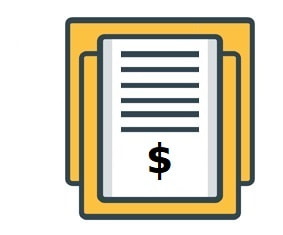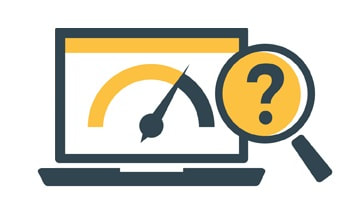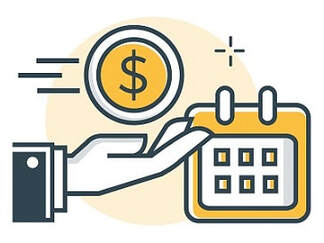15+ Must-Know Money Tips for Any Household Moving to a Single Income
Our exclusive guide outlines everything useful if you're considering transitioning to a single-income household, with proven tips to make your money go further and be spent on things that matter.
Updated 6 May 2022
Summary
If you have any suggestions that you would like to see published below, please contact our research team.
More ideas: Our ways to save guide has 20+ further ideas for cutting back on expenses without reducing your lifestyle and happiness.
Summary
- You and your family may be considering going down to one income for whatever reason. The good news is that it's completely normal to do this.
- If you're moving to single income to look after a child, the returns are arguably going to be significant as one or both of you spend more time seeing your baby grow.
- While the time one partner spends at home is continuous and has many ups and downs while the other partner works in paid employment, there are many benefits to becoming a single income household.
- Our guide explains everything you need to know to help you maximise the money you have coming in. It is presented logically to help you achieve quick wins early on and shape behaviour and habits that means your money will go a lot further.
If you have any suggestions that you would like to see published below, please contact our research team.
More ideas: Our ways to save guide has 20+ further ideas for cutting back on expenses without reducing your lifestyle and happiness.
MoneyHub Founder Christopher Walsh shares his views:
|
"Transitioning to a single-income family can be an exciting time if a new baby is on the way, or an uncertain time if the decision is around health issues. Whatever the reason, there is enough support and common sense in New Zealand to help you thrive even though your circumstances change significantly".
"I believe it's best to think of every saved dollar as a form of income. So, for example, every $1,000 you save is like an additional $1,500 of pre-tax income (if you're taxed at 33%). This way, giving up a second car, cutting down on how you spend at the supermarket and many other easy-win ideas become valuable". "I know that single income households struggle, but there's plenty of government support. Make sure you're in contact with Work and Income - you'll likely qualify for a few benefits that you're fully entitled to collect. Don't forgo these out of pride - it's free money that the government wants you to have". "I wish you the best in your journey, and do let me know if there's anything you want to be covered that would help single-income families - you can contact me any time". |
MoneyHub Founder Christopher Walsh
|
15+ Ways to Make Your Money Go Further as a Single Income Family
Visit a local budget advisory serviceIn a nutshell: Budget Advisors will help you save money. It's like getting a pay rise - they will find where you waste money and help you spend it on things that improve your life.
There are thousands of helpful budget advisors working all over New Zealand, and the service is free and friendly. Many MoneyHub users have engaged with budget advisors and had a positive experience. MoneyHub Founder Christopher Walsh shares his experience: "In my role at MoneyHub, I've met many Budget Advisors, and all of them have displayed a genuine warmth and care. The government pumps a lot of money into providing free budgeting services, so there's no reason not to take advantage of their time and expertise". "Many media stories continue to report the personal finance successes everyday New Zealanders achieve from working with budget advisors. So don't hesitate or feel anxious - they want to help you, and there are no downsides to meeting with them. Please tell them MoneyHub sent you - you'll be welcomed with open arms". Next steps:
|
Reduce Food costs with organisation and planningIn a nutshell: Unplanned or sporadic food shopping is expensive and a quick way to spend money you don't have. Worst of all, bad habits are repeated week after week.
To save money and eat better, we suggest getting a meal plan together for your weeks. This helps you buy exactly what you need, reduce costs and food wastage and keep meals varied. We've created a meal planner to help you, and you suggest looking at cheap and flavourful meal ideas online. Our How to Save Money on Food guide has more details. MoneyHub Founder Christopher Walsh shares his experience: "The reality is that meat and dairy, products that New Zealand produces an abundance of, cost more here than most of the world. A block of cheese is now over $10, and meat prices, even cheaper cuts, are going up in price. A recent study indicated the situation was getting worse". "To combat this, we suggest moving your shopping to discount retailers like fruit shops and Pak'N'Save, which routinely offer the lowest prices per consumer-focused studies". "I find some supermarkets in New Zealand eye-watering expensive and wonder how people can afford many of the items on sale. I don't have such a negative reaction in discount retailers". Know this: Many MoneyHub users report that Asian speciality shops, located in all main centres around New Zealand, offer lower prices for lentils, rice and other staples. Many of these shops offer such items in bulk, which can mean significant savings compared to Pak'N'Save and other discount supermarkets. Furthermore, we hear from users who suggest joining a Fruit and Vege Co-op (this one in Wellington being an example). Substitute to save more Kids favourites like Nachos have become expensive, with mince and cheese costs hitting record highs - you can save the mince, go vegetarian, add beans and reduce the cheese. Many other options can be found online. A Wellington-based MoneyHub user shares her experience for saving money on food: "Supermarkets often have 'reduced to clear' deals in their chilled section. You can get some really good deals with these, and anything you don't use can just be frozen for later. The other thing is to stock up on staples like tomatoes, beans and legumes. They are great for bulking out a meal and can be used instead of meat. I am vegan and find it can be quite a cost-effective way of eating. Even having a few meat-free meals a week is a great way to save money. Also checking online on supermarket websites and checking deals can save money". |
Cut back on out-of-home eating and drinking (it makes a HUGE difference to your finances)In a nutshell: The costs of eating out with friends are uncontrolled and absolute budget busters. We always want to support small businesses but suggest you do that after returning to double incomes when the costs are affordable.
The reality is going out for dinner with friends is expensive, and you'll rarely spend less than $50 per person by the time drinks are added on. If you're invited to something you must attend, we suggest looking at the menu before you go to avoid over-ordering. Of course, New Zealanders either split things evenly or pay per item - you never know which way it will go, so prepare for both. Further to this, cafes and takeaway coffee are convenient pleasures, but it's hugely expensive even for the most modest coffee drinker. $5 a day adds up to $1,500+ a year. This is one of the costs that are not worth it, given the amount of money you have to earn to pay for it. Alternatives:
|
Resist purchases with delayed buying to save significantly on non-essentialsIn a nutshell: Unplanned purchases are bank-balance destroyers. If you don't make a rule to avoid them, cash may soon be in short supply.
It's not unusual to want to buy something unessential on the spot. $50 or $200 items add up and, after all, are wants, not needs. If you feel strongly about the item after five days, then you may want to buy it. If you've forgotten about it by then, you've saved money very easily. This is a simple mindset that pays big dividends in the long run, and arguably it can turn into a wealth creator in the long term. |
Sell things you don't need on Trade MeIn a nutshell: If you are sitting on a bunch of stuff you no longer use or need, it is time to convert it to cash before you end up having to give it away for free.
Moving to a single income may mean some spare time to sell down things you know you don't need to hold on to. Trade Me is the perfect place to do that - our guide to selling on Trade Me explains everything you need to know to maximise your sale prices. |
Cutting back on power useIn a nutshell: Electricity is expensive, especially over winter, and forming good habits can save a lot over a lifetime.
Switching will save money: our research and media commentary also confirm it's hard to price, although we are confident in our leading provider selection per city. If you switch to the right provider, we believe you can save 5% to 15% of what you already pay. Forming good electricity habits is the best way to save long-term. You can save even more if you cut back on power use and be smart about when you use it. Top tips include:
|
Switch jobs for an immediate pay riseIn a nutshell: New Zealand employers are usually reluctant to give pay rises on request. Many try and ask; few have succeeded. The best way to get a pay rise is to switch jobs.
Despite high inflation, wages in New Zealand struggle to keep up. Many employers, suffering from increasing costs, don't increase wages for their staff at levels that help keep up with inflation. Negotiating a raise is one option, but most people switch jobs to increase their take-home pay. In most cases that is easier and helps career growth. What to do: Our guides to CVs, interview questions and improving your LinkedIn profile help with the process. You may however want to delay a move just in case your job security is threatened, especially given New Zealand's current economic uncertainty. |
Investigate assistance from Work and IncomeIn a nutshell: Many New Zealanders don't utilise help from Work and Income, even though they qualify. Assistance is, by law, available to those who qualify - and plenty of hard-working families are missing out on money that the government expects them to apply for.
We suggest starting with Working for Families, which offers Best Start Payment, Family Tax Credit, In-work Tax Credit, Minimum Family Tax Credit, Accommodation Supplement and Childcare Subsidy. Dealing with Work and Income may be unfamiliar - our guide to getting what you need outlines everything you need to know. MoneyHub Founder Christopher Walsh shares his view: "Work and Income has a very negative reputation throughout New Zealand, but ultimately it does function as it's designed to given it hands out billions of dollars every year to needy New Zealanders. You may have had a bad experience in the past, but as a working family you are entitled to support and in many cases you will qualify. I urge you to get in contact with Work and Income and see what you can get". |
Re-shop phone plansIn a nutshell: Too many New Zealanders waste too much money on phone plans - don't join them.
Many New Zealanders don't use anywhere close to their monthly data and minutes allowance. We suggest looking at our SIM-only mobile plan offers to help you find the right data and text/minutes plan for your needs. Skinny, for example, offers free calling between Skinny customers, reducing the costs of phoning within your family if you were to all switch to Skinny. Warehouse Mobile and Kogan are other examples of discount mobile plan providers that challenge the network operators and deliver outstanding value for money. |
Take more adventurous holidays (that cost less)In a nutshell: Life in New Zealand can be even better when you take holidays in the outdoors. It's also remarkably cost-effective and offers tremendous value for money.
New Zealand has some of the world's most scenic and best-equipped camping grounds. They're usually in great positions (on a beach or by a lake), and best of all, you can cook your food and avoid endless restaurants and means a holiday on your terms. MoneyHub Founder Christopher Walsh shares his views: "Motels and hotels, dinners out and activities cost a lot of money, especially when kids are involved. I'm a huge fan of camping grounds, and best of all, they've never been easier to access. Picking up a used tent on Trade Me and all the stuff that goes in it will cost you around $400, the price of two nights in a motor lodge for the average-sized Kiwi family. You've then got flexibility and adventure and a powered site for around $40 or $50/night. In many places, it's even cheaper. "I love staying at camping grounds - I find them completely underrated and located in some stunning places. DOC has a great selection all around New Zealand to compliment the privately-owned operations, many of which have unbeatable locations. Kids get to play with other kids, there's always something happening, and even if it rains (and rains hard), it's still an adventure (although perhaps in hindsight)". "As mentioned, the savings are huge - kids aren't confined to a motel space but instead have a family adventure, and there are often many benefits like playgrounds, beaches and interesting walks nearby. I don't see any downside, other than avoiding most of the South Island in winter, and even if you're washed out in summer, the kids will remember and laugh about it for years". |
Set up an emergency fundIn a nutshell: Setting up an emergency fund will save you from expensive short-term debt should something significant happen and you need money quickly.
Dropping to a single income and contributing $50 a week into a savings account to help you buffer unplanned expenses never has any downsides. If you can save up to 3-6 months of expenses, you have more protection from whatever headwinds come your way. It's a lot to put together, but if you're still double income, now is the time to do it. The benefits and comfort of having a mini nest egg later on cannot be exaggerated. Next Steps: Our guide to emergency funds has more details. |
Re-shop your broadband providerIn a nutshell: Broadband prices vary wildly, even though New Zealanders all use the same cable or fibre network. There's no need to overpay when the product between providers is near-identical.
Every year it's worth reviewing broadband plans to see if you can get a better price - it's almost certain you will. Broadband providers offer this to entice new customers. You don't need to be loyal when your fixed contract period ends either. Instead, it's time to re-shop. You may also want to share good deals with friends and family by way of a referral code to earn further discounts or credits. Next Steps: Our broadband comparison lists the latest deals to help you decide what's right for you. |
Re-Shop Insurance and Prepay Annually, Not MonthlyIn a nutshell: Insurance is almost always cheaper when you do two things - compare prices and pay annually. If you make the effort to compare, it is likely you will save around $100 to $200 per policy per year. In some cases you may save a lot more.
Our research of car and home insurance suggests policies are similar between well-known insurers, which means the cheapest may be the best option in many cases. Paying for an entire year of cover may be a significant outlay upfront, but it's almost always the cheapest way. Next Steps: Our guides to car insurance, home insurance and contents insurance have more details. |
Reduce subscriptionsIn a nutshell: You can easily save $500, $1,000 or even more a year by giving up on subscriptions you don't need or use. Companies love 'recurring revenue' as they know customers seldom make an effort to cancel. However, unless you see the value and actively use the service, we suggest cancelling the subscription.
The best way to find out what you subscribe to is to audit your most recent credit card bill and list of direct debits and pick out the items to chop out. Once identified, simply login to the service and click 'cancel' or call them up if that's easier. These services and products may include:
Estimated savings: Anything from $200 to $2,000 a year, depending on what you currently subscribe to. |
Consider selling your second carIn a nutshell: Don't underestimate the costs of running a second car, especially as you move to a single income.
Car ownership is expensive - if your family has two cars, would you be OK with one? When you sell a car, you'll not only get a sum of money, but you'll save a lot of ongoing costs. There will be no more WOF, repair costs, insurance and petrol station shocks. If you're a young family and one parent is commuting by public transport anyway, it's worth looking into. Many families do just fine with one car - we suggest strongly considering it. Next Steps: Our guide to car valuations helps estimate what your car is worth, which may incentivise you to sell it altogether. |
Learning to Cook (and get inspiration from YouTube)In a nutshell: YouTube mums arguably are the world's experts to pre-empt the question "what's for dinner?" You can benefit from their years of work by watching a few videos to help you plan with precision.
We suggest watching the following videos to get some ideas for low-cost, simple meals that feed families and are also nutritious:
Know this: Bringing lunch to work is essential to save more money, and is pre-packing lunch for children to avoid expensive buy-at-school meals. YouTube has all the answers and makes planning easy and efficient. |
Reduce overdraft fees by switching to be better bank accountIn a nutshell: Overdraft interest rates and fees are huge, and being in overdraft for an average of $2,000 a year can cost up to $500 in interest and fees and charges. This is a total waste of money and one you can easily avoid permanently with some sharp decisions.
Our guide to bank overdrafts shows that charges differ massively; some charge 10%, others as high as 23%. The good news is that joining a new bank offering a low-interest overdraft is easy and painless and will certainly help you save money right away. Our guide to cutting overdraft costs compares the best (and worst) bank deals available right now. Estimated savings: $200 to $300 per year. This is based on your overdraft interest rate falling from around 20% to 10% and an average overdrawn balance of $2,000 to $3,000. If your overdraft is often more, your savings will be higher. |
Get rid of credit card debt with a balance transfer, low-interest deal (or cut the card up altogether), and use cash where possibleIn a nutshell: Credit card interest is outrageously overpriced and completely unaffordable for single-income families. We suggest getting rid of it today. If you can live without a credit card it's likely you'll be able to save even more as there won't be the means to pay for temptations or unnecessary items.
Although COVID measures encourage contactless payments, consider using cash so you know where all of your money is going. We believe it's very easy to tap your way to an overdraft or credit card limit, but establishing a good relationship with money is easier when you use physical cash to make purchases. Next Steps: If you pay $150 per year for a credit card and then 20%+ interest on balances, you are wasting far too much money and a credit card probably isn't in your best interests. We strongly suggest considering a balance transfer credit card which will move debt to a 0% (or close to 0%) p.a. card. You can then pay back the balance until it's cleared without wasting any money on interest costs. Going "credit card free" while you raise a family is arguably a great way to do things. We believe kids pick up on all sorts of financial behaviours. Being card-free teaches your children that they don't need a credit card and saving up and buying things is far more sustainable. |


























